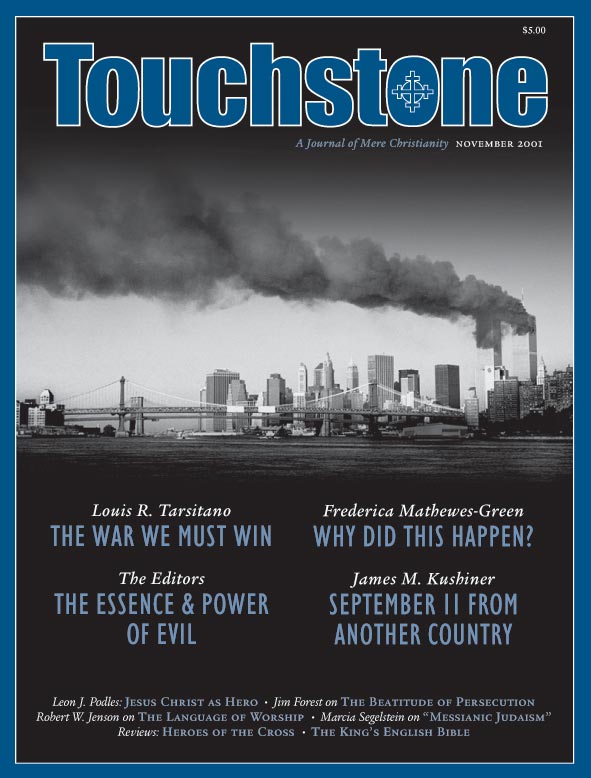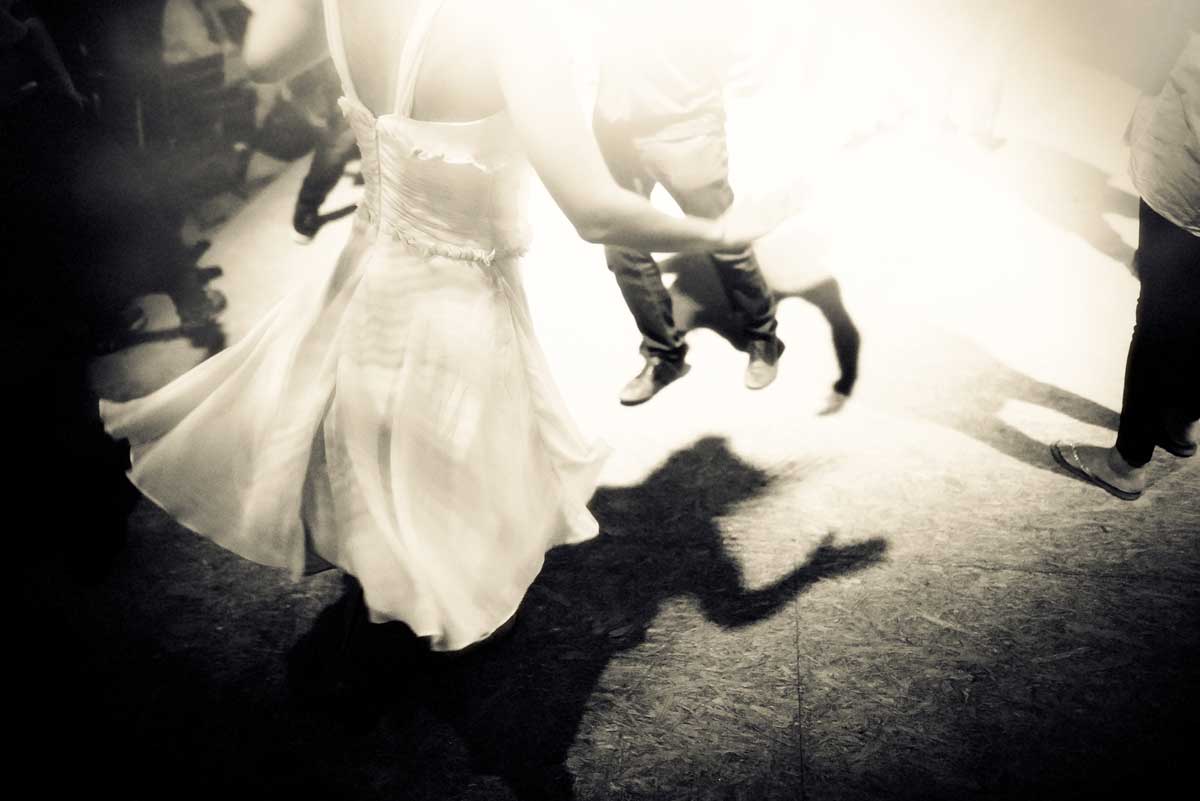Heroes of the Cross
The Catholic Martyrs of the Twentieth Century: A Comprehensive World History
by
Robert Royal
New York: The Crossroad Publishing Company, 2000
(390 pages; $39.95, cloth)
reviewed by Kevin J. Doyle
In the Christian imagination the word martyr is likely to suggest the early history of the Church. The fabled Roman persecution of Christ’s followers is where martyrdom as a historical phenomenon seems to belong. We want to believe that martyrs were born in less enlightened ages, in cultures that were simply incapable of tolerating Christianity within the philosophical or religious framework of their societies. Consequently, we dupe ourselves into believing that human history is a record of progress, a neat and orderly unfolding of time marked chiefly by increasingly pluralistic societies and an accompanying tolerance of difference.
Yet tragic events like the murder of Archbishop Romero in our own time force us to acknowledge the possibility that the forces at work in the first century are no different from those at work today. An event such as this reminds us all, perhaps uncomfortably, that the gospel continues to unsettle expectations and challenge accepted mores of our culture.
The title of Robert Royal’s book, The Catholic Martyrs of the Twentieth Century, presents a curious juxtaposition of ideas. Royal acknowledges in his introduction that martyrdom is a difficult concept to write about in the contemporary world. “Martyrdom is not one of the categories of modern thought,” he writes in the opening pages. Indeed, to the average reader, the very idea of Catholic martyrdom in the twentieth century may seem incredible. This book, however, returns us to the early church’s conception of martyrdom and in the process opens up to the reader a century of heroic Christian witness and unprecedented tragedy. The effect is to revivify an ancient concept and restore its power as a faith-inspiring phenomenon.
In his encyclical Tertio Millennio Adveniente (“On the Third Millennium”) John Paul II wrote that the twentieth century was a century of martyrs and implored the faithful not to forget their witness. This admonition stirred in Royal the desire to chronicle the stories of Catholics who were martyred around the globe in the last hundred years. What the author learned in his research is that Christianity disturbs the status quo today no less than it did in the Roman Empire.
Classical civilization saw in Christ’s teaching that “ancient slavery, sexual immorality, injustice, and state-sponsored brutality would change, and in large degree, disappear under that influence.” The brutal regimes of the twentieth century also recognized an enemy in Christianity and took torturous steps to destroy it. In the process of recording Catholic lives of exemplary virtue and courage, Royal also examines the nature of the totalitarian regime and its ultimate inability to abide with the Catholic Church in its midst. The book, therefore, successfully weaves a devotional tenor with astute political analysis. It is this combination that distinguishes Royal’s study from the pious accounts of martyrs written down the centuries. The book is at once commemorative and instructional; its relevance should not be understated.
Some of the lives in the book are familiar, such as Archbishop Romero of El Salvador, Maximilian Kolbe of Poland, and Edith Stein of Germany. But it is the less familiar, and sometimes completely unknown, lives that grip the heart and engage one’s deepest sensibilities. It is the “unknown” martyrs, the ones who don’t occupy places in the canon, who are a more sublime embodiment of the martyr. A salient characteristic of the martyr is the desire for anonymity and spiritual union with Christ through acceptance of suffering. Ironically, their most ardent desire would be not to appear in a book extolling their goodness. And yet that is precisely why they are in this collection, and why their witness needs to be proclaimed.
One of the lives profiled in the book is Miguel Pro, the clever Mexican priest who for years eluded the anti-clerical revolutionary government and ministered to the needs of the people. Pro, like so many of the martyrs in this book, forces us to reconsider the meaning of holiness. Contrary to popular perception, the holy man does not disdain the world and yearn to rise above it. Rather, he immerses himself in it because this is the reality of the Incarnation. Father Pro was a lover of music and laughter who deeply empathized with the working class. He didn’t particularly enjoy academics, but saw a great value in studying the church’s social teaching. He understood that his spiritual detachment from the world was what allowed his indefatigable involvement with his fellow Mexicans. The years following the 1917 Mexican Revolution brought a socialist government determined to wipe out the ancestral Catholic presence. In his heroic devotion to the needs of the people, Pro donned various disguises to avoid arrest and successfully perform his priestly duties. One day, he was saying Mass in workingman’s garb; another day, he was hearing confessions in the elegant dress of an urbane gentleman. In his desire to be “all things to all people,” Pro embodied St. Ignatius’s hope for his Jesuits. To the government, however, he was a traitor, and he met his end before a firing squad. The clergyman whom his superiors had dubbed “mediocre” attained extraordinary heights.
Royal also tells the remarkable story of Charles de Foucauld, a French Trappist from a privileged background who lived and died among the Tuaregs, a remote Muslim people from the Moroccan interior. The author traces this “French Prodigal Son” from his days as a libertine with a mistress to his death at the hands of the very people he sought to befriend. Foucauld’s meandering journey from the sensual to the metaphysical is in some sense the classic conversion story. But in this time of ecumenism, his dealings with a fiercely Muslim people over 75 years ago have a distinctly modern significance. As Royal observes, “The devout Muslims recognized in him something that bridged the wide differences of religion, culture, and experience that have long plagued interactions between Westerners and others.” When he determined to leave behind the certainty of a religious life in France for the solitude of the African desert, Foucauld wrote, “I must live this life of Nazareth . . . among the sickest souls, among the most abandoned of the sheep.” He died in the depth of obscurity, among a hostile people, with no friends to mourn him.
Although the book is intended to be a world history, the author would have been remiss if he did not devote the greater part of it to the European and Slavic martyrs. The story of European martyrdom is paradoxically both familiar and utterly alien. A group of nations once known collectively as Christendom became the destroyer of Christian culture. The baffling reality is that a Christian civilization systematically sought to destroy its very roots. But Royal is not content simply to enumerate the casualties and dismiss the tragedy as an absurdity. He traces these grim effects back to their cause because history is indeed cyclical and its lessons too often forgotten.
subscription options
Order
Print/Online Subscription

Get six issues (one year) of Touchstone PLUS full online access including pdf downloads for only $39.95. That's only $3.34 per month!
Order
Online Only
Subscription

Get a one-year full-access subscription to the Touchstone online archives for only $19.95. That's only $1.66 per month!
bulk subscriptions
Order Touchstone subscriptions in bulk and save $10 per sub! Each subscription includes 6 issues of Touchstone plus full online access to touchstonemag.com—including archives, videos, and pdf downloads of recent issues for only $29.95 each! Great for churches or study groups.
Transactions will be processed on a secure server.
more on martyrdom from the online archives
more from the online archives
calling all readers
Please Donate
"There are magazines worth reading but few worth saving . . . Touchstone is just such a magazine."
—Alice von Hildebrand
"Here we do not concede one square millimeter of territory to falsehood, folly, contemporary sentimentality, or fashion. We speak the truth, and let God be our judge. . . . Touchstone is the one committedly Christian conservative journal."
—Anthony Esolen, Touchstone senior editor










